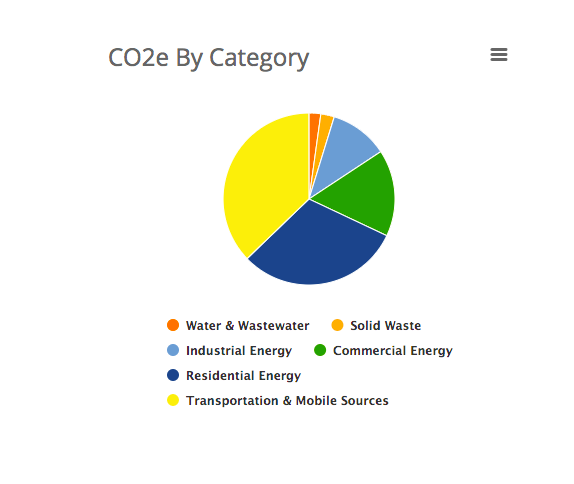How can college students take climate action in local government? This question is at the core of the Local Climate Action Program (LCAP) under the Pennsylvania Department of Environmental Protection (DEP). The program matches college students with local governments across the state, then trains both of them through a DEP contractor, ICLEI USA, on how to develop a Greenhouse Gas (GHG) inventory and climate action plan for that government.
The program’s most recent cohort included three Temple students, so our Office of Sustainability sat them down to discuss their experiences on Earth Day in Stories of Sustainability: ICLEI & Local Climate Action Planning in the Commonwealth.
Creating a GHG Inventory.
After being accepted into the program, the three students, Mark Costanzo, Nicole Somers, and Jada Ackley, received training from ICLEI on creating a GHG inventory tool in Fall 2020. These GHG inventories, as explained by Mark, are lists of emissions sources in the municipality (like homes, energy plants, transit systems, etc.) along with how many CO2 equivalents they emit. These inventories provide crucial information on setting goals of emissions reductions in the later climate action plans.

Students compiled data from local utility companies, transit sources, waste facilities, and more to build these inventories, and soon found that GHG inventories looked different in different places. For example, transportation and residential activities were the major contributors in Warwick Township, PA, the government with which Mark Costanzo collaborated on LCAP.
Local Climate Action Planning.
Students and local governments received additional training in Spring 2021 to create their climate action plan (CAP). These plans, as explained by fellow student Nicole Somers, were meant to reduce GHG emissions while preparing for the impacts of climate change. Accordingly, CAPs include GHG mitigation targets, objectives, and actions, like changing town ordinances to require energy efficiency standards on new buildings, alongside adaptation actions, like expanding green spaces and incorporating climate change vulnerability assessments into future construction plans. Lastly, they developed a monitoring plan to keep track of reductions going forward.

The third student, Jada Ackley, discussed the importance of community engagement in any CAP. On one hand, they explained, it helps governments gather information from residents for the plan, but also fosters community support for it. For some examples, Jada used surveys and community workshops to engage residents on what a CAP for Haverford Township needed to include.
Getting Involved.
In her closing remarks, Heidi Kunka, Energy Programs Specialist at DEP and overseer of LCAP, discussed the importance of getting a diversity of perspectives in climate action planning and invited students to fill out an interest form if they may want to apply next year. If you’re interested, check it out!
Everyone has something to gain from fighting climate change, and something to lose from letting it run unchecked.